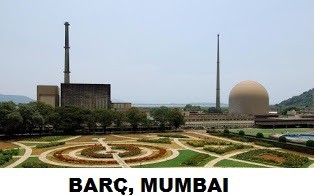
India’s Nuclear Doctrine Needs a Review?
Keeping in mind the emerging nuclear threats from both its nuclear neighbours, China and Pakistan, it is essential for India to articulate its nuclear doctrine in greater detail says some experts.
Strategic deterrence and credible minimum deterrence are valid options for India, according to them and they insist that New Delhi should continue with it. Nevertheless, India needs to take into account changes in country’s strategic environment brought about by the technological advancements as also the geopolitical shifts regionally as well as globally.
Already India’s nuclear doctrine and its deterrence posture are a subject of discussion at all major events around the world relating to Asia’s nuclear governance, regional security, and strategic stability. This discussion assumes significance in the context of changing nuclear doctrines and postures of United States, Russia, and China.
There is no unanimity amongst experts though on continued India reliance on ‘No First Use’ policy. This policy evolved out of the country’s specific strategic environment. It primarily seeks to enunciate that India’s nuclear weapons are inherently non-threatening and is meant for defensive purpose.
Nonetheless, a periodic review of India’s nuclear doctrine is essential. Such a review must be guided by sound strategic objectives. At the same India needs to reinforce its deterrence policy and signal its commitment to a massive retaliation posture in response to an attack with tactical weapons more effectively, according to the views reflected by noted nuclear experts in a panel discussion organised by the Indian Pugwash Society at the Institute for Defence Studies and Analyses (IDSA) in New Delhi in end April.
Unlike Pakistan’s, India’s nuclear programme has social applicability and economic viability. Indian nuclear programme took off in the fifties under the guidance of Homi Bhabha and has emerged as a major source of energy, according to Dr Jitendra Singh, Minister for Atomic Energy and Space. Setting the tone for a recent discussion on ‘India’s Role in Global Nuclear Governance’ (at IDSA), he pointed out that India has an accident free record for the past six-decades.
Global nuclear governance covers a wide range from nuclear non-proliferation to safety and from security to disarmament. Lack of transparency has become a major challenges for global nuclear governance, which inter alia is similar to domains like climate change and the law of the seas. India’s contribution to nuclear governance consists of an ecology of forums, institutions and norms, which have evolved with time.
There is no gain saying the fact that global governance needs to address the aspirations of an array of developing countries seeking nuclear energy, and not just those most likely to succeed. While they cannot be deprived of their rights to the peaceful use of nuclear energy, global governance laws, regulations and conventions oblige these countries to fulfil obligations that are in the interests of all. Expert view is that evolution in the nuclear governance regime has historically always been problematic. However, crises such as Iraq’s nuclear programme have helped in strengthening the regime.
There is a dialogue deficit amongst stakeholders, on nuclear governance; it should be bridged with regular exchanges on various aspects of governance, especially nuclear security and non-proliferation.
A new area of concern for global nuclear governance is cyber security. Even a small cyber-attack on a nuclear facility can lead to disproportionate consequences.
But as on date there inadequacy of cyber security training in the nuclear industry.
On its part, India remains a strong proponent of universal nuclear disarmament with “clear exposition of a way forward, a step by step process, underpinned by a shared universal commitment in an agreed multilateral framework”, according to Ambassador Amandeep Singh Gill, who is also Joint Secretary, Disarmament & International Security Affairs at the Foreign Office.
India’s contribution to nuclear governance consists of an ecology of forums, institutions and norms, which has evolved with time.
India’s public and vocal stand against nuclear weapons goes back to 1954 the year the first Prime Minister, Jawaharlal Nehru, proposed the idea of a complete ban on the testing of nuclear weapons. It was this call that had led to the Partial Test Ban Treaty (PTBT). However, in later years, with the security situation deteriorating in its neighbourhood, India felt the need to acquire nuclear weapons for its national security.
Presently, India is on its way to operationalising the fast breeder reactor. Next stage will be development of proliferation- resistant fuel cycles.
– ram singh kalchuri
-
CHINA DIGEST
-
 ChinaChina Digest
China’s PMI falls for 3rd month highlighting challenges world’s second biggest economy faces
ChinaChina Digest
China’s PMI falls for 3rd month highlighting challenges world’s second biggest economy faces
-
 ChinaChina Digest
Xi urges Chinese envoys to create ‘diplomatic iron army’
ChinaChina Digest
Xi urges Chinese envoys to create ‘diplomatic iron army’
-
 ChinaChina Digest
What China’s new defense minister tells us about Xi’s military purge
ChinaChina Digest
What China’s new defense minister tells us about Xi’s military purge
-
 ChinaChina Digest
China removes nine PLA generals from top legislature in sign of wider purge
ChinaChina Digest
China removes nine PLA generals from top legislature in sign of wider purge
-
-
SOUTH ASIAN DIGEST
-
 South Asian Digest
Kataragama Kapuwa’s arrest sparks debate of divine offerings in Sri Lanka
South Asian Digest
Kataragama Kapuwa’s arrest sparks debate of divine offerings in Sri Lanka
-
 South Asian Digest
Nepal: Prime Minister Dahal reassures chief ministers on police adjustment, civil service law
South Asian Digest
Nepal: Prime Minister Dahal reassures chief ministers on police adjustment, civil service law
-
 South Asian Digest
Akhund’s visit to Islamabad may ease tensions on TTP issue
South Asian Digest
Akhund’s visit to Islamabad may ease tensions on TTP issue
-
 South Asian Digest
Pakistan: PTI top tier jolted by rejections ahead of polls
South Asian Digest
Pakistan: PTI top tier jolted by rejections ahead of polls
-






Comments